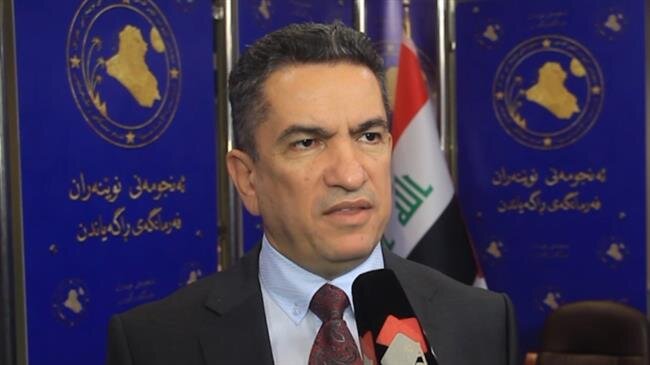Iraq PM-designate: Iranians not involved in govt. formation

Iraqi prime minister-designate Adnan al-Zurfi revealed on Saturday that he did not meet with new Iranian Revolutionary Guards Quds Force Commander Esmail Ghaani during his trip to Baghdad this week.
Speaking at a press conference in Baghdad attended, Zurfi revealed that he will send the government lineup to parliament and will await the legislature to set a date to vote on it.
He rejected claims that his appointment was constitutionally flawed, vowing that he will fulfill his mission “to the end”.
“Those opposed to the government can express their position at parliament alone,” he added. “It is in our best interest to respect the sound rotation of power.”
“I received information from the Iranians that they do not want to interfere in the government formation process.”Zurfi’s appointment has been flatly rejected by the Fateh alliance, headed by Hadi al-Ameri, who is aligned with Iran.
Zurfi questioned the rejection, adding, however, that anyone has the right to do so but within democratic boundaries. “I am banking on lawmakers from blocs that expressed their readiness to support me,” he added on whether his designation will be approved.
On whether those rejecting him are being influenced by foreign powers, namely Iran and significantly after Ghaani’s visit, Zurfi stressed that he did not meet with the Quds Force leader.
“I did not receive word from him that he really opposes my designation,” he said, Asharq Al-Awsat reported.
“I received information from the Iranians that they do not want to interfere in the government formation process.”
On how he plans to balance the tensions played out between the United States and Iran in Iraq, he said, “My policy is based on keeping Iraq away from parties seeking to settle scores on its territory.”
He stressed that he wants to establish “balanced” ties with all sides and that he wants to achieve Iraq’s interests.
On his government program, Zurfi told reporters that it prioritizes resolving the economic crisis, meeting the demands of protesters and holding early elections, and establishing balanced relations with all foreign powers.
The United States is fiercely opposed the close relationship between Iran and Iraq. The religious and cultural affinity between Iran and Iraq are so strong that more than 2 million Iranians visit Karbala, where the shrine of Imam Hussein (AS) is located, to observe Arbaeen rituals.
Iran was also on the side of Iraq in defeating Daesh, also called ISIL.
Daesh celebrated the U.S. assassination of General Qassem Soleimani, Iran’s legendary commander in the war against terrorism.
Leave a Comment